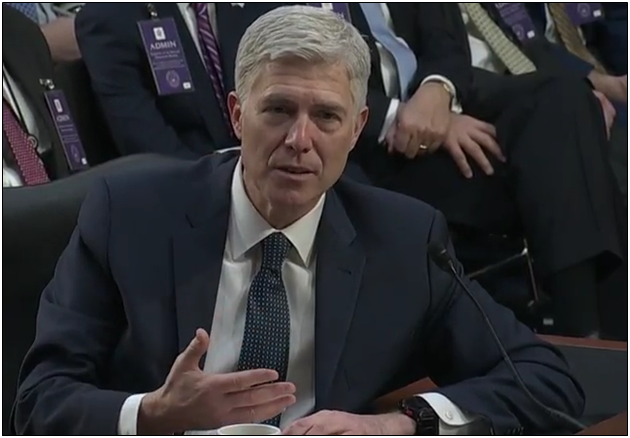With up to 44 Senate Democrats pledged to vote against ending debate on President Donald Trump’s Supreme Court nomination of Judge Neil Gorsuch, the make or break moment for the Republican Senate majority is now at hand.
It’s now or never to confirm Gorsuch — and any other textualist committed to the Constitution to the nation’s highest court.
Despite Gorsuch’s indisputable qualifications to serve on the bench — the American Bar Association gave him its top rating of “well-qualified” — Senate Democrats are now signaling they intend to filibuster every Republican nominee that pledges to adhere to what the Constitution actually says.
This is significant because since 1917 when the formal cloture rule was instituted in the Senate, Republicans have never had a filibuster proof majority. And they probably never will.
Thus, Senate Republicans have no choice. When the Democrats filibuster Gorsuch, they must change Senate rules and require a simple majority to confirm Supreme Court justices.
The alternative is to allow, even when Republicans control a Senate majority and the White House, the Senate minority to dictate the terms of Supreme Court’s balance of power — an intolerable standard.
If so, they might as well make Senate Minority Leader Chuck Schumer (D-N.Y.) president on all Supreme Court nominees, since he will be the arbiter of who is acceptable.
And a politically unsustainable one for Republicans. How would Senate Republicans justify capitulating on Gorsuch to their voters in the 2018 midterms? In a year when they should be able to pick up seats, they might instead lose a few.
This is nowhere near a nuclear option. Really, it is the constitutional option.
Only once in history has a Supreme Court nomination failed to achieve a cloture motion, in 1968 with Abe Fortas’ nomination for Chief Justice. Filibusters of lower court judges have been more common, but let’s that aside. It’s no longer relevant since Senate Democrats eliminated the filibuster on executive branch and lower court judicial nominees in 2013.
Otherwise, prior to 1917, Supreme Court justices and all other appointments for that matter were subject to simple majority votes. It is only in recent history that they are now threatened to be filibustered.
That is not to say the Senate ought to be a rubber stamp.
If a majority of senators want to oppose a nominee, then oppose him or her. Robert Bork was infamously defeated not on a cloture motion in 1983, but by failing to garner a simple majority of the Senate, despite Republicans having a majority.
Let that be the standard. If Senate rules are an obstacle to one as qualified as Judge Gorsuch to be on the Supreme Court when a majority of the Senate supports him, then it’s time to change the rules.
Robert Romano is the senior editor of Americans for Limited Government.







